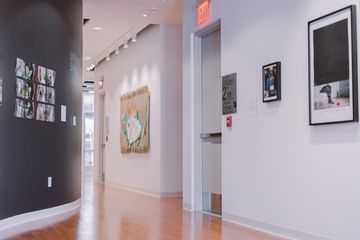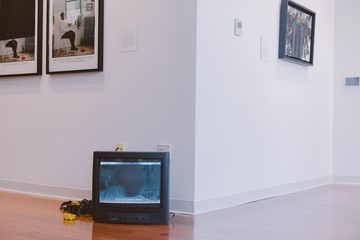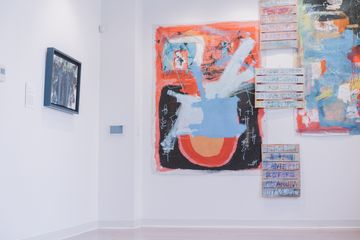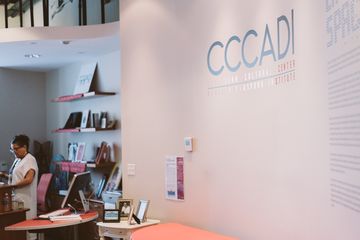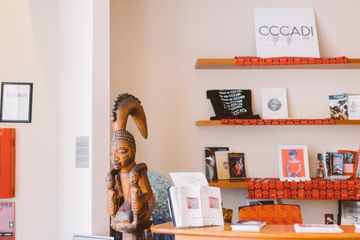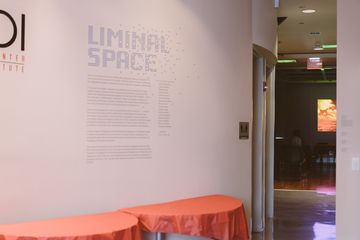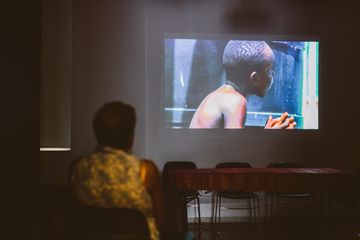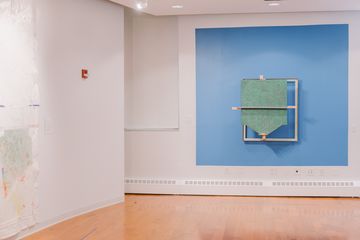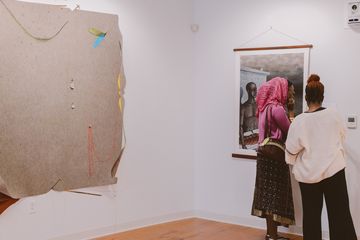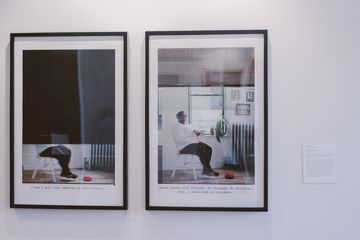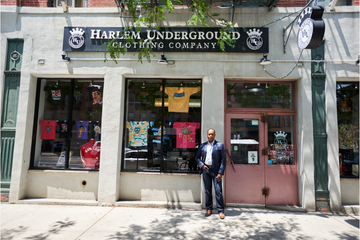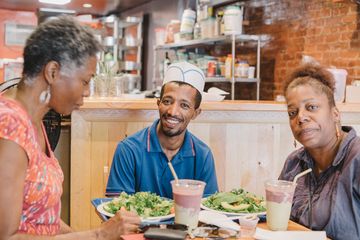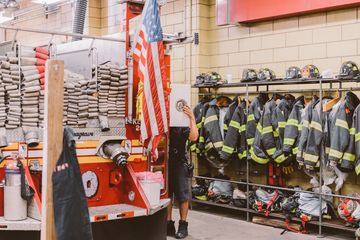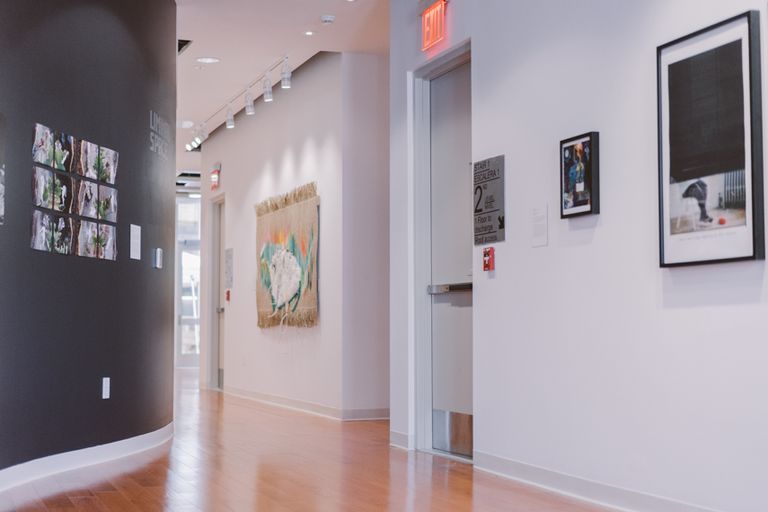
The Caribbean Cultural Center Africa Diaspora Institute, which moved to its latest location on 125th Street in October of 2016, celebrated its new home with the three-part exhibition “Home, Memory, and the Future,” which focused entirely on Harlem. When the Manhattan Sideways team visited in the summer of 2017, the Center was in the midst of the second part of their exhibition: “Harlem and Home in the Global Context.” We were eager to learn more about the project and were fortunate enough to chat with Janet, one of the staffmembers, as we browsed through the art on display.
Janet began our conversation by clarifying that “the Center is not a museum. We don’t collect here.” Instead, there is an ever-changing array of different exhibitions that usually revolve around a theme. Those themes are always under the overarching topic of the African Diaspora, as one of the Center’s core missions is to raise awareness of how the forced dispersal of Africans and their customs affected other cultures. Namely, it demonstrates how different cultures and their respective arts are interrelated due to the common thread of African influence.
This goal has been an essential one for the Center ever since its beginnings in 1976, when its founder, Dr. Marta Moreno Vega, realized that there was a general ignorance in regards to Caribbean, Latin American, and African cultures. Thus, through education and outreach programs, she sought to enlighten others. Equally as significant, she modeled herself and her institution on the concept of being an “artivist,” which involves finding the intersection of social justice and art and understanding how positive social change can be effected through creative mediums.
The Center tries to reach students at a young age with its Teaching Living Cultures initiative, tailored for those in Pre-K through 12th grade, which provides exposure to the various art forms associated with the African Diaspora. It also continues to modernize its methods of connecting with and gaining the interest of the public through a series of apps that better appeal to their young audiences.
The CCCADI also maintains that it is never too late to educate oneself, which is why it offers programs for adults via Community Arts University Without Walls, which offers international exchanges that are open to everyone. By creating a platform for people to go abroad and immerse themselves in foreign customs and art forms, the Center hopes to promote “conscious cultural tourism.” At the time of our visit, Janet told us that the staffmembers were busy preparing for their trip to Puerto Rico, where they planned to visit local artists’ studios and gain a direct understanding of the country’s contemporary art scene. She reiterated that although these exchange programs are open to anyone, they are often used by members of the Latinx community to reconnect with their cultures.
Another important aspect of the organization is the Sacred Traditions project. Janet revealed that the Center is “unofficially known for decolonizing African secret traditions,” meaning that it seeks to dispel negative stigma surrounding certain belief systems. She said that many people hold misconceptions about so-called “fringe” beliefs like santería, voodoo, or gagá, which are often practiced throughout the Caribbean. The CCCADI helps to clear up misconceptions and demystify these sacred traditions in various ways, be it through trips to African nations, symposiums on African and indigenous beliefs, or exhibitions and concerts. The Center also demonstrates how elements of these traditions live on today, highlighting the relevance of learning about past practices and honoring the collective cultural heritage created by the African Diaspora.
